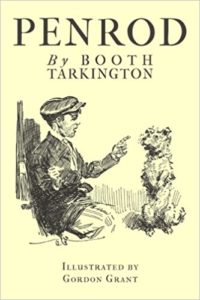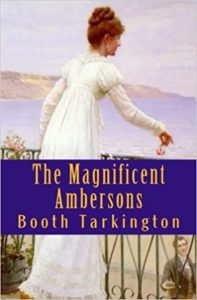It’s summertime, and while the living might be easy, the writing? Not so much.
It’s the season of vacations at the beach, weekends at the lake, and late nights on the patio for relief from the heat. Those of us with school-age children are juggling our workdays with their lazy summer schedules. While the change of pace may provide a welcome break — with more time lounging at the pool, working in the garden, or planning a family reunion — it also means less time for writing.
The novel you’ve been working on and the essays you’ve been researching may feel like they have no place in summer’s laid-back ease. Maybe that’s the problem: You have the time to write, but you lack the desire to sit down and focus on the same projects you’ve been tackling all year. How can you carry on as usual with the humidity and the barbecues and the sweet memories of summers past that flicker around us like tiny fireflies at dusk?
Instead of forcing the same habits that work the rest of the year, I’m taking my summer writing cues from Indiana author Booth Tarkington, whose birthday is tomorrow, July 29. Though I tend to be a regionalist myself, often writing about the people and places of Indiana, I had never read anything by this prolific Hoosier who cranked out more than three dozen novels and several plays, won two Pulitzer prizes, and had two honorary degrees conferred on him by Princeton University.
Tarkington himself was something of a summertime writer, caught “in the throes of nostalgia,” according to Atlantic literary critic Thomas Mallon. “To be caught with Tarkington in one’s hands is to be suspected of nostalgia, a willingness to endure the second-rate for the sake of some moonlight on the Wabash, which must still be flowing somewhere through the heartland,” Mallon writes.
In fact, the Wabash River does still flow in the heartland. It’s one of two aquatic arteries that cross Indiana and comprise the watershed that sustains our state. And wholly apart from nostalgia, Indiana still claims Tarkington as one of her favorite literary sons.

Having now read a little by and about the man, I think that despite Tarkington’s lukewarm legacy outside his home state, he achieved both popular and critical acclaim during his lifetime precisely because he was a summertime writer, always searching for the things that charmed him.
Summer may be half over, but you can still find the pleasure of writing in this sweltering season with these Tarkington-inspired tips.
1. Write what you want
Tarkington was born into an upper middle class family, but much of the wealth was lost in the Panic of 1873. He lived a life balanced between his provincial Indiana home and the elite East Coast boarding school he attended in high school. Likewise, his college education started at Indiana’s land-grant Purdue University and finished at the Ivy League’s Princeton. As a result, his writing seems to be divided between the two worlds he inhabited, even if most of his works are set in Indiana and the Midwest.
With these two settings to drawn from, Tarkington’s wide-ranging body of work seems to be about exactly what he wanted to explore, whether he received commercial success, critical success, or no success at all. The stories captured in his books and screenplays match the real life stories he observed or heard in his various circles. Critics called his work “uneven,” suggesting his quality varied dramatically from one piece to another. But I like to think the variation was a result of shifting genres and tones.
Writing what you want does come with inherent risks. An audience that expects a certain style from a writer must adapt. And writers who dabble in new genres or topics, especially late in a career, do subject themselves to a new learning curve. It won’t be perfect at first. But summer is a time to follow your whims and give yourself permission to try, even if it only leads you to return to your preferred genre or methods when the chill of the air descends in the fall.
2. Keep writing

Your summertime schedule may not provide the same structure that other seasons do. Or perhaps you’re coming off a winter season, when composing even a single sentence felt like chipping ice off a block, one frozen word at a time. But don’t let either situation be an excuse to stop writing. Keep at it.
3. Try something new
Because of those two Pulitzers, Tarkington is best known for his novels, but he didn’t limit his writing to what worked previously. In addition to serious literary novels, he wrote popular trilogies, young adult stories, humorous tales, screen and stage plays, romances, essays, and more. He also collaborated with other writers on plays and novels.
In addition to trying new things in his writing, Tarkington was also a man of many interests. He served as a one-term state legislator, he was a sailor, he edited historical novels, he collected fine art, and he was a trustee of the John Herron Art Museum, the predecessor to the Indianapolis Museum of Art.
Summertime is the perfect time to try something new. Experiment with writing in a new genre, write about a new topic, collaborate with another writer, or start a new project. Perhaps you need to take a break from writing to find inspiration — learn a new skill, volunteer with a new organization, or develop a new hobby.
This summer, the best thing you can do for your writing may be to excuse yourself from the serious business of the craft. Hopefully, in those dog days of summer, when you know autumn is just around the corner, you’ll find that, like Tarkington’s character Penrod, “as [you] wrote, [your] burden had grown lighter.”
Photo by Nsg Photo, Creative Commons, via Flickr. Post by Charity Singleton Craig, co-author of On Being a Writer
Browse more Summer Resources
- Grammar for a Full Life Book Club: On Becoming Less Possessive - June 16, 2021
- Grammar for a Full Life Book Club: Chilling Out on the Grammar Rules - June 9, 2021
- Grammar for a Full Life Book Club: A Passive Voice - June 2, 2021

Laura Lynn Brown says
Great suggestions, for any time of year. Thanks for this information a writer I’ve heard of but not read, and for all the nods to Indiana things.
Charity Singleton Craig says
Thanks, Laura. I think these are all lessons I’m learning … again … in my writing life. I don’t think I’ll ever arrive.
And I’m kind of partial to my home state. I like to give her props whenever I can. 🙂
Glynn says
I hadn’t read Booth Tarkington in decades – and you’ve inspired me. He was writing at the same time as Edith Wharton, Willa Cather, and Jack London, and I haven’t read them in a long time, either.
Charity Singleton Craig says
I think it was kind of a heyday in American literature: these are all the greats you’ve listed. I find an author like Tarkington interesting for his widely varying subject matter and genres. I’m kind of all over the place myself, so I guess I relate. But as I noted above, there’s also a professional risk when you do that. I’ve felt the sting of that a bit, and I’m guessing I’ll feel it even more as my career advances. I’ve got a long way to go before I’m a Tarkington expert, but I’m glad I moved him down from the names of buildings and into my reading pile.
Sandra Heska King says
I hope I live a long, long time. Cuz I’ve got a tall, tall to-read-re-read pile, and you just added to it.
“Tarkington was also a man of many interests.” I had to smile at this. A bazillion years ago when we still lived in Georgia, our neighbor told me I had a terrible work history. (I’d tried on several hats both in and out of nursing.) I think he was teasing, but I was bummed by those words for a long time until my sister comforted me by saying I was just “a woman of many interests.”
Charity Singleton Craig says
I’m right there with you, Sandy. Though I have to say, after a long life of varied interests, it’s fascinating to watch how those interests begin to intersect. A lot of what I do right now as a freelancer and solopreneur seems to be the culmination of all my varied pursuits.
If you want something light and funny, start with Penrod, like I’m doing. Otherwise, you might want to pick up one of Tarkington’s prize winners.
Bethany R. says
Such an encouraging post, Charity, thank you for writing it.
“…he achieved both popular and critical acclaim during his lifetime precisely because he was a summertime writer, always searching for the things that charmed him.”
This point stands out as key to me. I’ve been processing the idea of just writing about the Simple Pleasures in my life over the last several months.
“Critics called his work ‘uneven,’ suggesting his quality varied dramatically from one piece to another…”
“Even during his lifetime, many of Tarkington’s books were described as “mediocre,” especially before and after his Pulitzer Prize-winning novels…”
So comforting to know that even Pulitzer winners can produce a variety of reviews.
Thank you for all the tips and enriching info.
Charity Singleton Craig says
Thanks, Bethany. I found Tarkington to be most inspiring when looking at his career as a whole. A Pulitzer surely comes with a lot of pressure. And I wonder if he knew some of his works weren’t that great, but he wanted to keep writing and try new things anyway? I want to learn more about this remarkable man to channel some of this professional indifference to what others (especially critics) think. Not that I don’t want to write beautifully. I guess it’s more of a desire to write freely, like your Simple Pleasures idea from above.
Thanks for joining in the discussion.